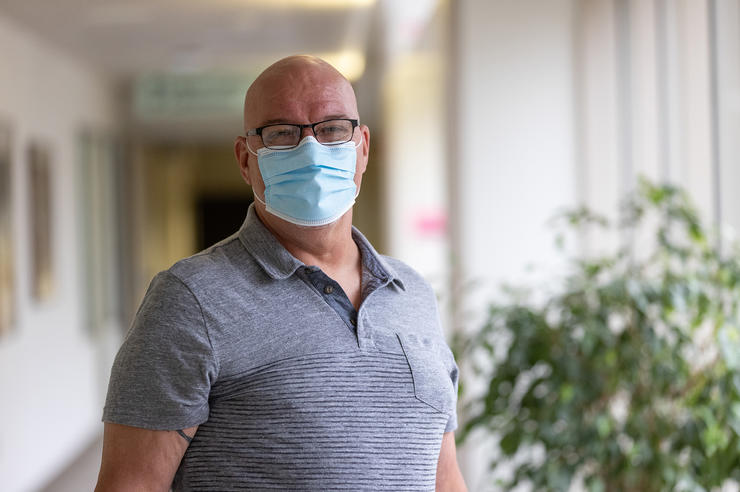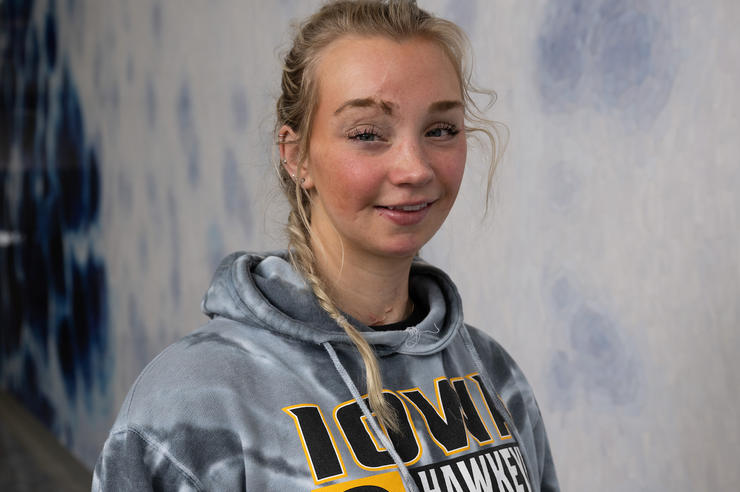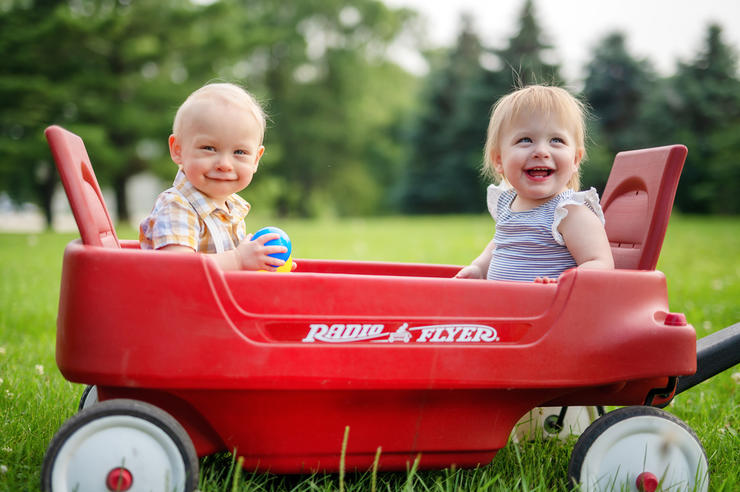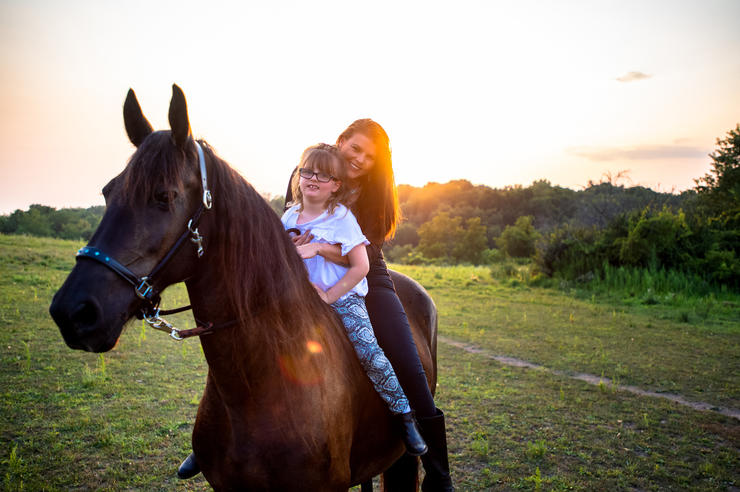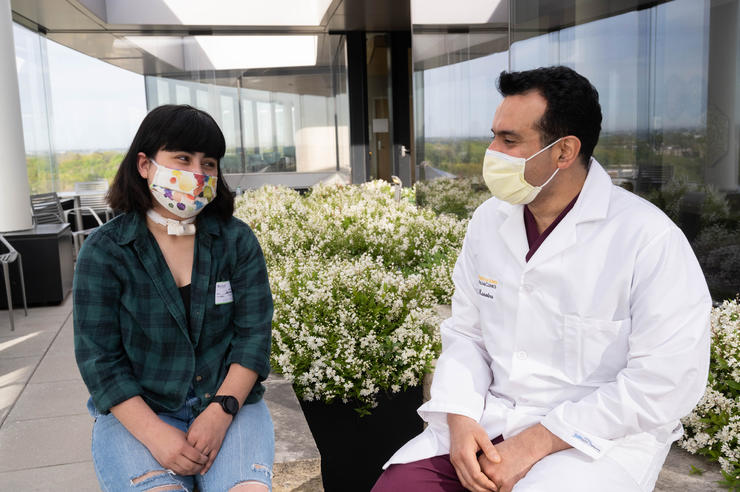Firefighter faced the fight of his life
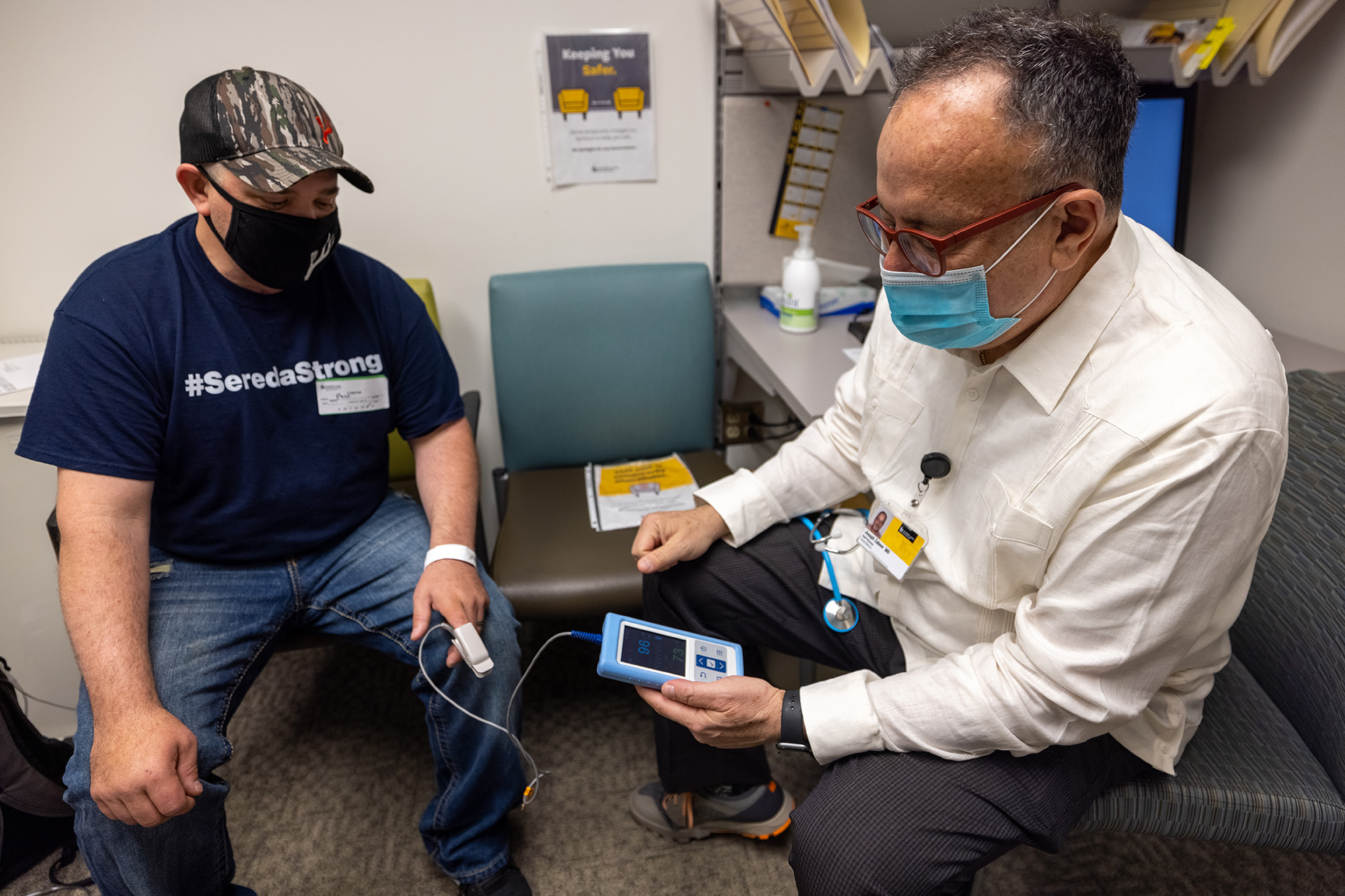
As a healthy and outdoorsy firefighter-paramedic, Paul Sereda, of Coal Valley, Illinois, wasn’t too worried about developing a severe case of COVID-19.
“When COVID-19 came around, of course I tried to avoid it, but I thought, ‘Alright, I should be able to handle it, no problem,’” he says.
When he tested positive in July 2020, it was initially manageable, as he had expected. He had the typical cough, fatigue, and loss of taste and smell.
By day six, however, his health was spiraling. He could barely stay awake – and when he was awake, he was gasping for air.
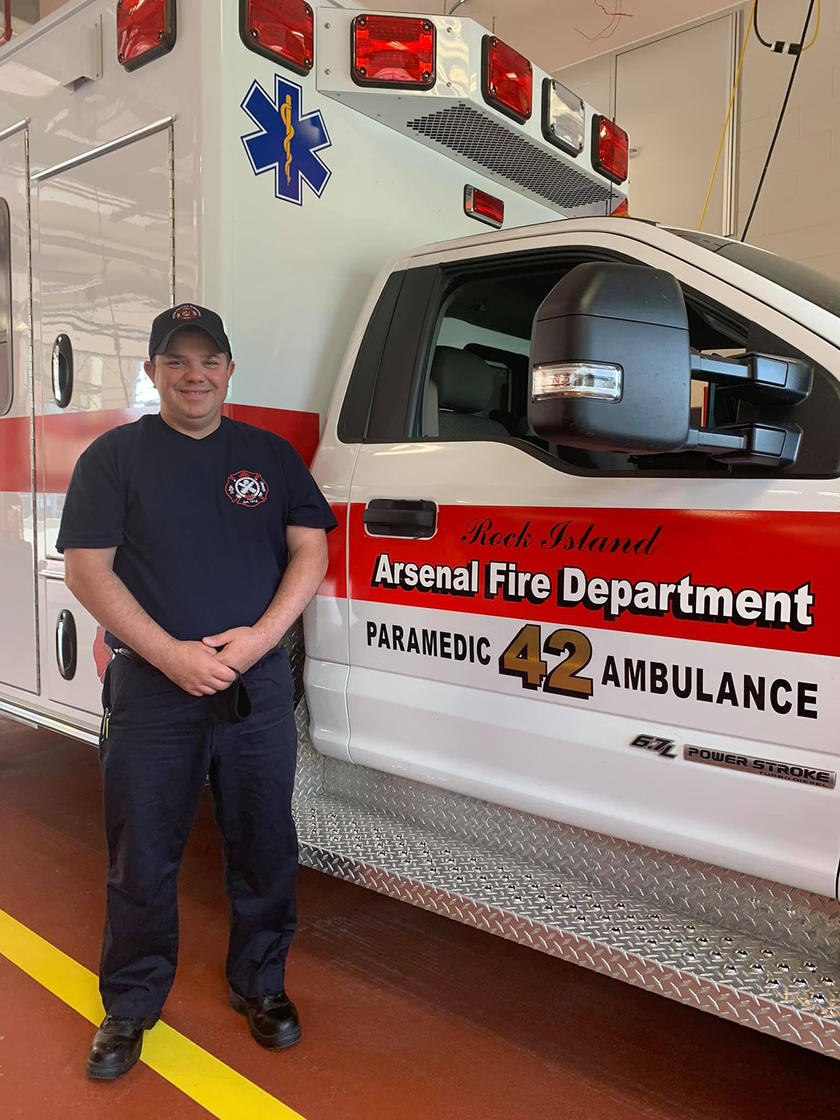
Paul Sereda has worked as a firefighter/paramedic with the Rock Island Arsenal Fire Department. As he continues to recover from COVID-19, Sereda has not yet been released for full duty at work.
“Being a stubborn paramedic, I thought I was fine,” he says. “But I was turning green, gray, and blue. My wife threw my clothes at me and said, ‘You’re going to hospital.’”
Paul was admitted to the intensive care unit at his local hospital and intubated. When his oxygen levels weren’t improving, he was transferred to University of Iowa Hospitals & Clinics for more advanced care.
“I didn’t even get a goodbye kiss or anything,” says his wife, Natalie, who contracted COVID-19 from Paul but had a much milder case. “He told me he’d only be there for three or four days. I didn’t get to see him for almost a month.”
Paul was hospitalized for 62 days. At one point, his doctors thought he’d be the first patient in Iowa who would need a double-lung transplant due to COVID-19.
A month on life support
Not long after being airlifted to the emergency department at UI Hospitals & Clinics, Paul was placed on extracorporeal membrane oxygenation (ECMO)—a life-support system that does the job of the heart and/or lungs in order to provide them a chance to recover. He spent 32 days on ECMO.
A dedicated team of ECMO specialists—nurses, respiratory therapists, physical therapists, perfusionists, physicians, and others—monitored Paul around-the-clock while also keeping him mobile to prevent his body from deconditioning.
“They got him up, they made him move, and made him active,” Natalie recalls. “They wanted him strong. That was a blessing.”
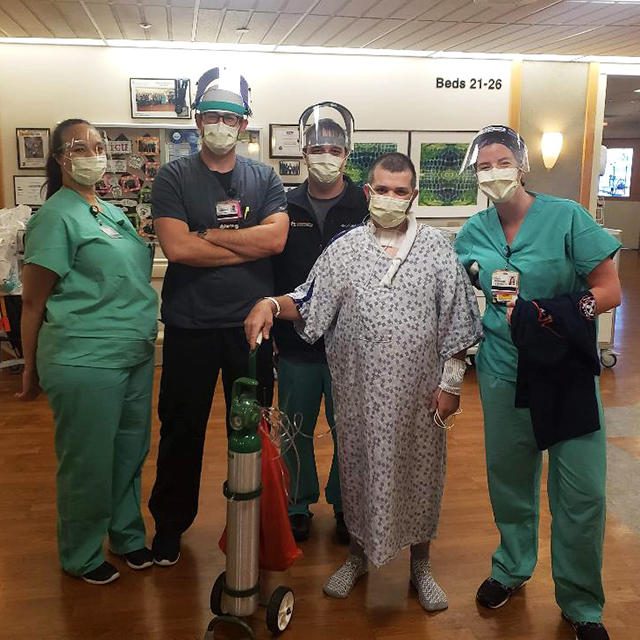
A dedicated team of ECMO specialists—nurses, respiratory therapists, physical therapists, perfusionists, physicians, and others—monitored Paul around-the-clock while also keeping him mobile to prevent his body from deconditioning.
And with no visitors, due to health and safety protocols, they also kept him company.
“I absolutely loved them, and I became friends with a couple of them and still talk to them,” Paul says.
“I think his care team cried more than I did the day I was finally able to come visit,” Natalie says.
At the same time, UI physicians were working with other major academic medical centers to track his case and review clinical decisions. A double-lung transplant was considered.
“When I heard that, that’s when I really got scared,” Paul says.
A long road to recovery
Paul’s lungs eventually recovered on ECMO—a transplant wasn’t needed—and he was released to go home. A procession of fire trucks, squad cars, friends, and community members lined his street to welcome him back.
He was immediately determined to get back to work and do the things he loved, especially with hunting season around the corner.
“I’d have good days and bad days,” he says. “My mailbox is about 60 yards from our home. I’d walk halfway and just sit down on the driveway and take a break. Other days, it would take me 15 minutes to unload the dishwasher. But I made myself stay active.”
If you’ve recovered from COVID-19, it’s important to continue to watch your health closely. COVID-19 is a new and relatively unknown disease. The short- and long-term effects it can have on your body are still not clear.
The specialists at the University of Iowa Health Care Post-COVID-19 Clinic provide ongoing care for anyone who has recovered from COVID-19.
Shortly after being discharged in fall 2020, Paul started visiting the UI Post-COVID-19 Clinic to track his recovery and keep an eye on any lingering symptoms.
Paul also enrolled in a pulmonary rehabilitation program, which includes an exercise regime that is done under monitored conditions, so patients can understand their physical limitations and find ways to improve their physical capacity.
“Paul has made really great strides in his ability to do physical activity,” says pulmonologist Alejandro Pezzulo, MD, who is a member of Paul’s care team. “He has improved quite a bit and his lungs have also improved when we look at them on X-rays.”
Ten percent of his lung function is permanently gone, and he has not been released for full duty at work.
“It’s more of a marathon right now,” he says. “I work out every day and push myself, sometimes wearing 50- to 100-pound vests on the treadmill and stair-climber. The progressions have been good, and I feel like I can get there.”
And with the support of his care team and his family and colleagues, Paul is determined to continue regaining his strength and lung capacity.
“The doctors here said I was less than a day away from dying at home,” he says. “But the care at University of Iowa was just amazing. They were right on it.”
